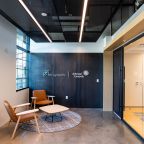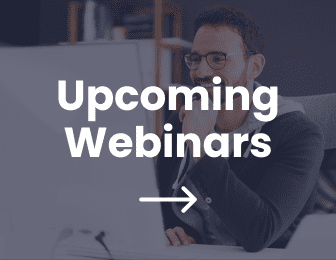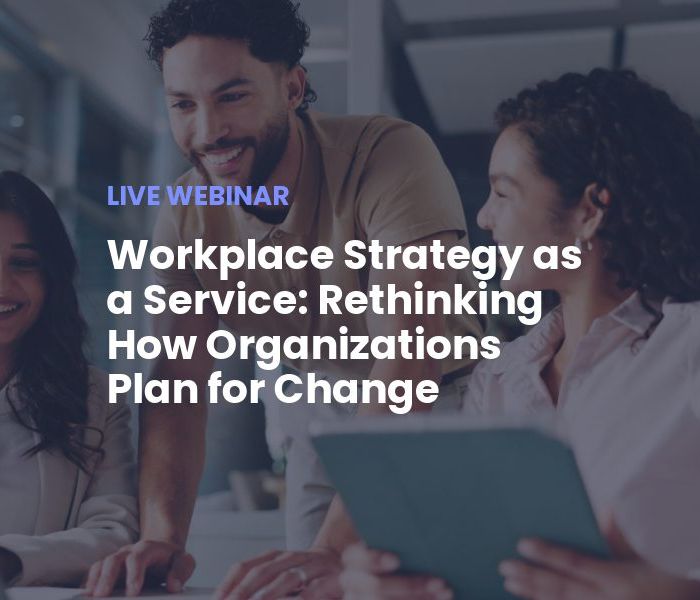There is no question companies have been changing processes and adapting the workplace in order to support the workforce better for the future. A recent ADP Research Institute study found 44% of employers have officially adopted flexible and remote work arrangements, up from 24% prior to the pandemic.
In part one of this article series, we examined how Workplace Management Solutions help businesses optimize the real estate portfolio to reduce hard costs while protecting employee health in a Post-COVID-19 world. Today, we’ll look at some of the soft cost benefits made possible with Workplace Management Solutions. While the savings can be harder to compute, the soft benefits of a digital transformation probably have an even greater impact on your company’s future strategic advantage.
Workplace Management Solutions provide companies with real-time workplace data and illuminate long-term trends that benefit decision makers. Insights delivered by FM:Systems solutions help our customers:
- Make strategic decisions about how to use the workplace in the future.
- Create a more engaging work experience for employees.
- Exercise more control over change management.
Find out how Workplace Management Solutions can help your organization embrace the benefits of digital transformation and achieve strategic workforce advantages in the years to come.

Make better informed decisions about the workplace
Across all business functions, management teams are becoming more data-driven. To future-proof your business and contribute to long-term success, you can’t rely on gut feelings. The world is changing too quickly to implement decisions based on hunches. You have to let the data guide your planning and decisions. However, in order to do that, you must first have the right tools to collect the data and analyze it.
How Workplace Management Solutions help:
FM:Systems Workplace provides facilities managers, HR and other business leaders with the real-time data and trends information needed to drive strategic plans about the workplace and workforce, including:
- Real-time views of intelligent floor plans
- Occupancy data to analyze space utilization
- Environmental sensor data to optimize building performance and safety
- Centralization of all your facility information including requirements, approvals, budgets, schedules, vendors, warranties, leases and more
- Customizable workflows that enable you to create a work order process that matches the way your organization works—or responds to a new challenge your organization must address

Recruit, retain and engage the best possible workforce
People are the most important factor in long-term business success. That common wisdom still holds true as businesses prepare for the post-pandemic world. Moving forward, most surveyed employees indicate they’d like to strike a balance between working in the office and working from home. A Gartner analysis of 2019 and 2020 data showed full-time remote workers are 5% more likely to be high performers than those who work full-time from the office. Furthermore, “organizations that offer employees flexibility over when, where and how much they work, see 55% of their work force as high performers.”
In order to recruit, retain and engage the best possible workforce, companies will need to be able support flexibility in terms of where and when work gets performed. Here are a few data points that speak to the importance of a hybrid work model in employee engagement:
- Employee loyalty: 80% of employees said they’d be more loyal to their employer if they offered flexible work options.
- Recruiting: 73% of job seekers rated work-life balance among the most important factors they consider when evaluating a job—equal to salary considerations.
- Retention: Nearly 30% of working professionals say they will quit their current jobs if required to come back and work in the office full time.
- Job satisfaction: Employees who had a flexible schedule that included the opportunity to work remotely had higher levels of job satisfaction and less burnout.
- Employee engagement: Employees who spend 60% to 80% of their time working remotely are the most likely to be engaged.
How Workplace Management Solutions help:
In order to facilitate a hybrid work model with sufficient flexibility to attract, support, retain and engage top performers, businesses need to make the transition between in-office time and remote work as seamless as possible. Workplace Management Solutions empower employees to:
- Reserve a desk in advance of making plans to commute to the office, so they know they have a place to work.
- Book meeting rooms and other “we” spaces, so they can attend meetings and work in teams, making the most of collaborative time in the office.
- Use interactive kiosks to locate where they need to go.
- Know that the spaces they will occupy at the office have been properly cleaned and sanitized for their safety, and that they are only able to reserve spaces with proper distancing from other employees.

Minimize disruption with strong change management processes
When you’re making decisions to drive the future success of your company, you need to be able to make changes with confidence. However, changes to the workplace can feel disruptive and confusing to employees if they aren’t executed effectively. When employees feel uncertain or insecure, it can risk lowering their satisfaction, engagement and productivity.
According to change management research by McKinsey, 70% of change programs fail to meet their goals. This is largely due to internal resistance by employees. It’s important to have good change management processes in place in order to facilitate smooth workplace transitions. You’ll also want to communicate openly and transparently with employees about both your goals for change and measured results. Workplace Management Solutions can help on all of these fronts.
How Workplace Management Solutions help:
By helping Facilities and HR work together to plan workplace changes, Workplace Management Solutions ensure everyone has the information they need to effect changes while engaging employees in the process. Whether you’re making space changes such as adding offices/meeting rooms or driving large change initiatives like adoption of a permanent hybrid workplace model, Workplace Management Solutions will provide the data to manage the change and communicate real results to employees.

Cost savings + data-driven decisions = strategic transformation
Businesses that utilize Workplace Management Solutions will find themselves in a stronger position to grow and adapt in the post-COVID-19 world of work. Not only will they have the data needed to make the best possible decisions to optimize the real estate portfolio, but they will also be able to control costs by creating highly efficient processes for cleaning and sanitization as well as fixed asset management. On top of that, leaders with workplace data will be able to make the best possible decisions about how to reorganize and remodel spaces to return workers to the office safely.
Workplace Management Solutions also provide tools to support hybrid workplace plans. Collecting and analyzing workplace data over the long-term will continue to pay benefits in terms of strategic decision-making and organizational resilience. Workplace trends and insights will support workforce planning and help businesses attract and retain top talent with a workplace that drives engagement and reflects company culture.











